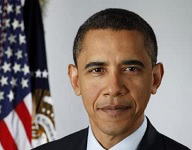箕面.の英会箕面.の英会話教室.:英会話.KEA.−箕面. 小野原、彩都. 茨木話教室.:英会話.KEA.−箕面. 小野原、彩都. 茨木
箕面、小野原、彩都、茨木.の.英会話スクール.です
・個人レッスンが中心です ・講師は日本人!
・英検、TOEIC、ビジネス英語の特別授業も好評です。
ギャラリー
Hague Tribunal Rejects Beijing’s Claims in South China Sea
BEIJING ? An international tribunal in The Hague delivered a sweeping rebuke on Tuesday of China’s behavior in the South China Sea, from the construction of artificial islands to interference with fishing, and ruled that its expansive claim to sovereignty over the waters had no legal basis.
The tribunal also said that Beijing had violated international law by “causing severe harm to the coral reef environment” and by failing to prevent Chinese fishermen from harvesting endangered sea turtles and other species “on a substantial scale.”
The landmark case, brought by the Philippines, was seen as an important crossroads in China’s rise as a global power. It is the first time the Chinese government has been summoned before the international justice system, and neighboring countries have hoped that the outcome will provide a model for negotiating with Beijing or for challenging its assertive tactics in the region.
“It’s an overwhelming victory. We won on every significant point,” the Philippines’ chief counsel in the case, Paul S. Reichler, said after the decision was announced. “This is a remarkable victory for the Philippines.”
China, which refused to participate in the tribunal’s proceedings, has expressed defiance about the case, insisting for months that it would ignore the decision and risk being labeled an international outlaw.
In a tough speech in Washington last week, a former senior Chinese official said that the findings would amount to no more than “waste paper” and that China would not back down from its activities in the South China Sea even in the face of a fleet of American aircraft carriers.
But with the geopolitical stakes high, the official, Dai Bingguo, a former state councilor who spoke with the approval of the Chinese government, also counseled moderation, saying that the situation in the South China Sea “must cool down.”
Mr. Dai met with the United States national security adviser, Susan E. Rice, and Secretary of State John Kerry called his Chinese counterpart, Wang Yi, afterward, in an attempt to dissuade Beijing from escalating the dispute in the event of a finding against China.
Many in the region are worried that China will react to the decision by accelerating efforts to assert control over the South China Sea, which includes vital trade routes and fishing waters as well as potential oil and mineral deposits.
The Philippines filed its case in 2013, after China seized a reef over which both countries claim sovereignty. There has been speculation that Beijing might respond to the tribunal’s decision by building an artificial island at the reef, Scarborough Shoal, a move that could set off a conflict with the Philippines and its treaty ally, the United States.
The key issue before the panel was the legality of China’s claim to waters within a “nine dash line” that appears on official Chinese maps and encircles as much as 90 percent of the South China Sea, an area the size of Mexico. Beijing cites historical evidence to support the claim.
The Philippines had asked the judges to find the nine-dash claim to be in violation of the United Nations Convention on the Law of the Sea, which details rules for drawing zones of control over the world’s oceans based on distances to coastlines.
China boycotted the tribunal, saying that it had no jurisdiction in the case. Because the sovereignty of reefs and islands in the sea is disputed, Beijing asserted, the tribunal could not rule on competing claims to the surrounding waters. The treaty covers only maritime disputes, not land disputes.
In the hours before the decision was to be emailed to China and the Philippines on Tuesday, a spokesman for China’s Foreign Ministry said at a regular news briefing that Beijing would reject whatever the tribunal sent it. “We will not accept any so-called material it provides, no matter what it might be,” said the spokesman, Lu Kang.
The issue has powerful ramifications for China’s domestic politics, as an integral part of the ruling Communist Party’s narrative is that after long periods of humiliation at the hands of bigger powers, China has regained its former greatness.
The party contends that the disputed areas in the waterway have been China’s since ancient times, and any test of the credibility of that narrative is seen in Beijing as a challenge to party rule.
Some commentators in China have said in recent days that military maneuvers in the South China Sea should not be ruled out as an immediate response to the tribunal’s finding. “Whether it will be significant or large scale I cannot say,” said Shi Yinhong, a professor of international relations at Renmin University in Beijing.
China is hosting the Group of 20 summit meeting in September, a major international forum that it wants to proceed without the distraction of conflict. But Mr. Shi said he was not sure the government “has that kind of patience” to wait until after the gathering before taking some sort of action in the South China Sea.
Still, some in China have counseled moderation in recent days.
In a surprising opinion article on the India Today website over the weekend, a professor of international relations at Fudan University in Shanghai, Shen Dingli, wrote that Beijing needed to “revise its stance” and “employ a more effective approach” that maintained China’s “long-held ‘smiling’ image.”
The new president of the Philippines, Rodrigo Duterte, has signaled that he would be more accommodating toward China than his predecessor, Benigno S. Aquino III, and he was reported to have met last week with the Chinese ambassador in Manila, Zhao Jianhua.
The case before the tribunal was filed at the initiative of Mr. Aquino, whose term ended on June 30. Soon after the case was filed, China began building artificial islands in the Spratly archipelago, parts of which are also claimed by the Philippines, in a move that many saw as a demonstration of contempt for the international court system.
The new Philippine foreign minister, Perfecto Yasay, said over the weekend that the Philippines would consider talks with China over the dispute. But he said negotiations would have to be in line with the Convention on the Law of the Sea, which China and the Philippines have ratified.
Experts in international law said that negotiations could be the most positive outcome of the case.
Such analysts point to a case in 1986, in which the United States ignored the International Court of Justice in a ruling that declared the Reagan administration’s mining of the harbors of Nicaragua to be illegal. Washington had not ratified the Convention on the Law of the Sea, and it still has not.
But the unanimous ruling 30 years ago by the judges in The Hague emboldened congressional critics to cut funds for the administration’s campaign against the Sandinista government in Nicaragua, and it galvanized countries in Central America to seek a settlement of the conflict.
The tribunal ruling on the Philippines case has no enforcement mechanism: There is no international maritime police force, and China will not vacate or dismantle the artificial islands it has built on top of atolls in the Spratly archipelago. That makes the legal arguments important, the analysts said.
“In a way the tribunal will not solve the South China Sea issue but will heavily influence future negotiations,” said Markus Gehring, a lecturer in law at Cambridge University. “The tribunal rulings will move the goal posts towards the Philippines and the smaller countries.”
Brunei, Indonesia, Malaysia, Taiwan and Vietnam, all of which have claims in the South China Sea, will be reading the finding carefully to see what the tribunal says about the nine-dash line within which China asserts sovereignty.
In some areas, for example, the nine-dash line reaches inside waters where Indonesia controls economic activity under the Convention on the Law of the Sea. The treaty grants countries “exclusive economic zones” up to 200 nautical miles from their coasts.
When Chinese fishing boats operated this year in what Indonesia considers its waters near the Natuna Islands, Indonesian maritime forces tried to stop them. The Chinese Coast Guard then intervened to rescue the fishing boats.
The ruling in The Hague is specific to the Philippines and China, but Indonesia and the other claimants have hoped that a ruling calling the nine-dash line into question would bolster their ability to defend their economic zones.
英会話教室
関西イングリッシュアカデミー
〒562-0023
箕面市粟生間谷西1−1−2
無料体験レッスン
お問合せ 080-6117-4101
英会話.KEAのホームページをご覧頂きまして誠に有難う御座います北摂(大阪府箕面市東部)にある英会話教室.です。
最寄駅は北千里です。
171号線 小野原交差点からすぐです 地図
*生徒さんの声・反響 >>>
*英会話.レッスン日記 >>>



